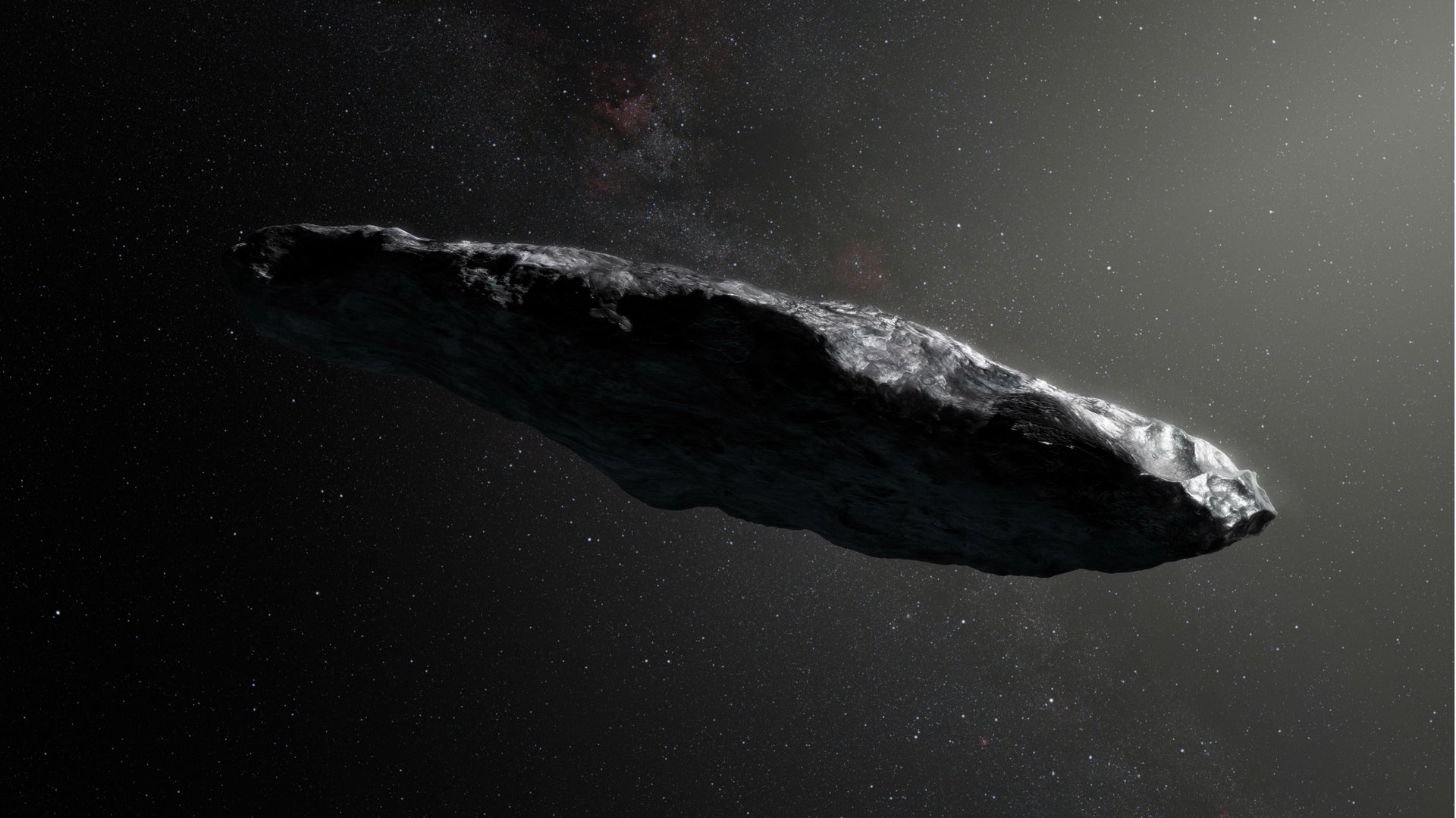Stephen Hawking’s search for extraterrestrial life came up short
If that pink, cigar-shaped interstellar asteroid from November seemed fishy to you, you’re not alone. Scientists, too, have thought that the first object to visit us from another solar system seemed foreign enough to potentially harbor life.


If that pink, cigar-shaped interstellar asteroid from November seemed fishy to you, you’re not alone. Scientists, too, have thought that the first object to visit us from another solar system seemed foreign enough to potentially harbor life.
Several teams have jumped to start studying ‘Oumuamua, which means “messenger from afar arriving first” in Hawaiian, through highly sensitive radio telescopes. They can pick up long waves of energy that some celestial objects like pulsars or galaxies emit and, in theory, detect alien spaceship transmissions or signals.
Yesterday (Dec. 14), researchers from Breakthrough Listen, renowned physicist Stephen Hawking’s $100-million project to search for extraterrestrial life—announced that their search had failed to find any evidence of life so far. Initial observations conducted on Dec. 13 from the 330-foot (100 m) Green Bank Telescope in West Virginia didn’t detect any radio signals out of the ordinary.
“This is a fishing expedition,”Avi Loeb, professor of astronomy at Harvard University and an adviser to the Breakthrough Listen project, told the Guardian. “We are most likely not to find anything, but it is worth checking steadily our fishing hooks.”
The search for extra terrestrial life (SETI) research team based in Mountain View, California is also observing the super-sized grain of space rice, although it hasn’t turned up any new signs of life, either.
Both research teams are planning to conduct more telescope observations on ‘Oumuamua, and to continue ciphering through data they’ve already gathered. Current radio-telescope technology has allowed scientists to take measurements and readings from the object even when it’s twice as far from Earth as the Earth is from the sun. But the asteroid has been speeding away from Earth and our solar system at a whopping 196,000 miles per hour. If there is extraterrestrial life on ’Oumuamua, scientists will have to act fast to find it.
Correction: An earlier version of this article said ‘Oumuamua is from another galaxy. It is from another solar system, but it is not known whether it is from another galaxy.